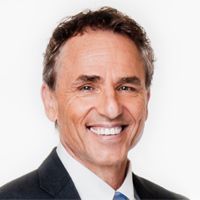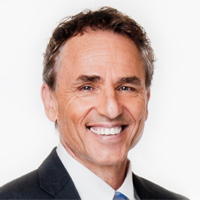Be More Like Warren Buffett, Less Like You, When Investing Your Money
Seven time-tested investing tips retirement savers can take away from Warren Buffett.


Profit and prosper with the best of Kiplinger's advice on investing, taxes, retirement, personal finance and much more. Delivered daily. Enter your email in the box and click Sign Me Up.
You are now subscribed
Your newsletter sign-up was successful
Want to add more newsletters?

Delivered daily
Kiplinger Today
Profit and prosper with the best of Kiplinger's advice on investing, taxes, retirement, personal finance and much more delivered daily. Smart money moves start here.

Sent five days a week
Kiplinger A Step Ahead
Get practical help to make better financial decisions in your everyday life, from spending to savings on top deals.

Delivered daily
Kiplinger Closing Bell
Get today's biggest financial and investing headlines delivered to your inbox every day the U.S. stock market is open.

Sent twice a week
Kiplinger Adviser Intel
Financial pros across the country share best practices and fresh tactics to preserve and grow your wealth.

Delivered weekly
Kiplinger Tax Tips
Trim your federal and state tax bills with practical tax-planning and tax-cutting strategies.

Sent twice a week
Kiplinger Retirement Tips
Your twice-a-week guide to planning and enjoying a financially secure and richly rewarding retirement

Sent bimonthly.
Kiplinger Adviser Angle
Insights for advisers, wealth managers and other financial professionals.

Sent twice a week
Kiplinger Investing Weekly
Your twice-a-week roundup of promising stocks, funds, companies and industries you should consider, ones you should avoid, and why.

Sent weekly for six weeks
Kiplinger Invest for Retirement
Your step-by-step six-part series on how to invest for retirement, from devising a successful strategy to exactly which investments to choose.
Warren Buffett, probably the world’s greatest stock market investor of all time, has said he has one key rule when investing: “Never lose money.” Has the Sage of Omaha ever lost money? Yes. But his losses have been small and infrequent compared with his many large, frequent and long-lasting victories.
His point is to focus on protection, not just growth. Mr. Buffett is what is known as a “value investor.” He buys companies, and their capability to earn money, rather than just looking at their prices.
He is an investor, not a speculator. Investors demand to be paid continuously for owning an asset, focusing less on the price of the stock and more on what will keep coming into the kitty over time. Speculators don’t care about earnings or dividends. They bet on the price, and the price alone. They are short-term technical traders, not long-term value investors. No traders are listed ahead of Warren Buffett on the list of richest Americans.
From just $107.88 $24.99 for Kiplinger Personal Finance
Become a smarter, better informed investor. Subscribe from just $107.88 $24.99, plus get up to 4 Special Issues

Sign up for Kiplinger’s Free Newsletters
Profit and prosper with the best of expert advice on investing, taxes, retirement, personal finance and more - straight to your e-mail.
Profit and prosper with the best of expert advice - straight to your e-mail.
The value investor wants to get paid, even if the price of the stock goes lower. They want the same or better earnings this year than last year. If the market falls, they believe fear will drive demand back to value stocks — companies that make money and pay dividends. The methodology of the value investor is a system: Choose quality companies, get paid dividends to own them, reinvest those dividends and from time to time cull out stocks that no longer fit your model.
So, how can we be more like Warren and less like ourselves when it comes to investing our hard-earned retirement dollars?
First, we need to heed the words “hard-earned” and “retirement.” These are the only retirement savings you have in the world. If they are lost, you can’t just run out and get another batch. Your retirement savings represent 20 or 30 years of saving and contributing. You placed a priority on growing this nest egg and making sure it would be fully intact when you retired. Why would that priority change?
The second important consideration is the word “retirement.” The closer you are to your retirement date, the more you should be paring back risk. A lot can go wrong in a short period. Each year that passes, you are one year closer to losing your current paycheck and having no other pool of capital than your nest egg to support you and your spouse for life.
You will be moving from what is known as the Accumulation Phase to the Income Phase, from contributing to withdrawing. Imagine how you would feel if you retired in 2007 or 1999, and your money got cut in half just as you were beginning to withdraw serious money for lifetime income. Would your confidence take a hit?
In both cases, little did you know that you were a year away from suffering a loss of 50%, or thereabouts.
True, the market can eventually come back. But the laws of mathematics have not been repealed. If, before the crash, you were drawing 4% annually from a $300,000 nest egg to deliver $12,000 a year of income ($1,000 a month), you’d be suddenly withdrawing at a clip of 8% from your new total of $150,000 to get the same income. Even with the market recovering, try putting a pencil to taking out 8% of your remaining money every year after a 50% decline. You won’t like the results.
If you can live on Social Security alone, no problem. March on and worry not, pilgrim. But if you are like many retiring or retired Baby Boomers, life has gotten expensive, and you have no intention of lowering your living standards when work stops. I’ve been planning financial futures for over 21 years and found that spending does not decline after retirement. In fact, in some cases it increases due to more travel as well as gifts to grandkids, church, etc.
It’s not out of the norm for retiring engineers, teachers and other professionals to spend $80,000 to $120,000 a year to support their essentials and lifestyles, including taxes and insurance. Let’s round it to $100,000 gross. Take that times 30 years. Reality: You will need $3 million of income from all sources — without accounting for inflation, non-covered medical, a rise in taxes or a breakdown in Social Security. With inflation, that number could hit $5 million.
What to do now:
If you are relying on market-based assets alone to derive your income from now on, here are some timely tips for you:
- Be an investor, not a speculator.
- Diversify your holdings. The market will zig and zag for the rest of your life. There could be one or more “2008s” sitting out there somewhere. For part of your portfolio, you need assets that zig when the market zags – and still keep paying you the same income, even if the market crashes.
- Separate your precious retirement money into categories or “buckets.” I like using four main buckets: cash (cash equivalents), fixed income, growth and insured outcomes. I like to see my clients enjoy their lives more and worry less about market outcomes.
- Make sure every one of your dollars makes its way into a bucket, and make sure each bucket has its own specific task and time deadline.
- In your growth bucket, think like Warren Buffett, not Jimmy the Greek. Be an investor, not a speculator, with most of your money in your growth bucket. A sliver can be directed toward speculation, but only to satisfy an urge.
- Fall in love with dividends. Over the past 20 to 50 years, the stock market has not averaged 10% unless you calculate in the act of reinvesting dividends. Ignore at your peril.
- Consider annuities for your insured income bucket. The guarantees of reliable income from the right annuity may give you and your spouse the financial confidence you seek.
The appearances in Kiplinger were obtained through a PR program. The columnist received assistance from a public relations firm in preparing this piece for submission to Kiplinger.com. Kiplinger was not compensated in any way.
Profit and prosper with the best of Kiplinger's advice on investing, taxes, retirement, personal finance and much more. Delivered daily. Enter your email in the box and click Sign Me Up.

Steve Jurich is the founder of IQ Wealth Management in Scottsdale, Ariz. He has more than 23 years of experience helping individuals, families and businesses realize their money goals. He is the author of the book "Smart is the New Rich" and hosts the daily radio show "Mastering Money" on Money Radio. Jurich is an Accredited Investment Fiduciary® and a Certified Annuity Specialist® who manages the IQ Wealth Black Diamond Dividend Growth ™ and the Blue Diamond Technology Leaders™ portfolios.
-
 How Much It Costs to Host a Super Bowl Party in 2026
How Much It Costs to Host a Super Bowl Party in 2026Hosting a Super Bowl party in 2026 could cost you. Here's a breakdown of food, drink and entertainment costs — plus ways to save.
-
 3 Reasons to Use a 5-Year CD As You Approach Retirement
3 Reasons to Use a 5-Year CD As You Approach RetirementA five-year CD can help you reach other milestones as you approach retirement.
-
 Your Adult Kids Are Doing Fine. Is It Time To Spend Some of Their Inheritance?
Your Adult Kids Are Doing Fine. Is It Time To Spend Some of Their Inheritance?If your kids are successful, do they need an inheritance? Ask yourself these four questions before passing down another dollar.
-
 The 4 Estate Planning Documents Every High-Net-Worth Family Needs (Not Just a Will)
The 4 Estate Planning Documents Every High-Net-Worth Family Needs (Not Just a Will)The key to successful estate planning for HNW families isn't just drafting these four documents, but ensuring they're current and immediately accessible.
-
 Love and Legacy: What Couples Rarely Talk About (But Should)
Love and Legacy: What Couples Rarely Talk About (But Should)Couples who talk openly about finances, including estate planning, are more likely to head into retirement joyfully. How can you get the conversation going?
-
 How to Get the Fair Value for Your Shares When You Are in the Minority Vote on a Sale of Substantially All Corporate Assets
How to Get the Fair Value for Your Shares When You Are in the Minority Vote on a Sale of Substantially All Corporate AssetsWhen a sale of substantially all corporate assets is approved by majority vote, shareholders on the losing side of the vote should understand their rights.
-
 How to Add a Pet Trust to Your Estate Plan: Don't Leave Your Best Friend to Chance
How to Add a Pet Trust to Your Estate Plan: Don't Leave Your Best Friend to ChanceAdding a pet trust to your estate plan can ensure your pets are properly looked after when you're no longer able to care for them. This is how to go about it.
-
 Want to Avoid Leaving Chaos in Your Wake? Don't Leave Behind an Outdated Estate Plan
Want to Avoid Leaving Chaos in Your Wake? Don't Leave Behind an Outdated Estate PlanAn outdated or incomplete estate plan could cause confusion for those handling your affairs at a difficult time. This guide highlights what to update and when.
-
 I'm a Financial Adviser: This Is Why I Became an Advocate for Fee-Only Financial Advice
I'm a Financial Adviser: This Is Why I Became an Advocate for Fee-Only Financial AdviceCan financial advisers who earn commissions on product sales give clients the best advice? For one professional, changing track was the clear choice.
-
 I Met With 100-Plus Advisers to Develop This Road Map for Adopting AI
I Met With 100-Plus Advisers to Develop This Road Map for Adopting AIFor financial advisers eager to embrace AI but unsure where to start, this road map will help you integrate the right tools and safeguards into your work.
-
 The Referral Revolution: How to Grow Your Business With Trust
The Referral Revolution: How to Grow Your Business With TrustYou can attract ideal clients by focusing on value and leveraging your current relationships to create a referral-based practice.